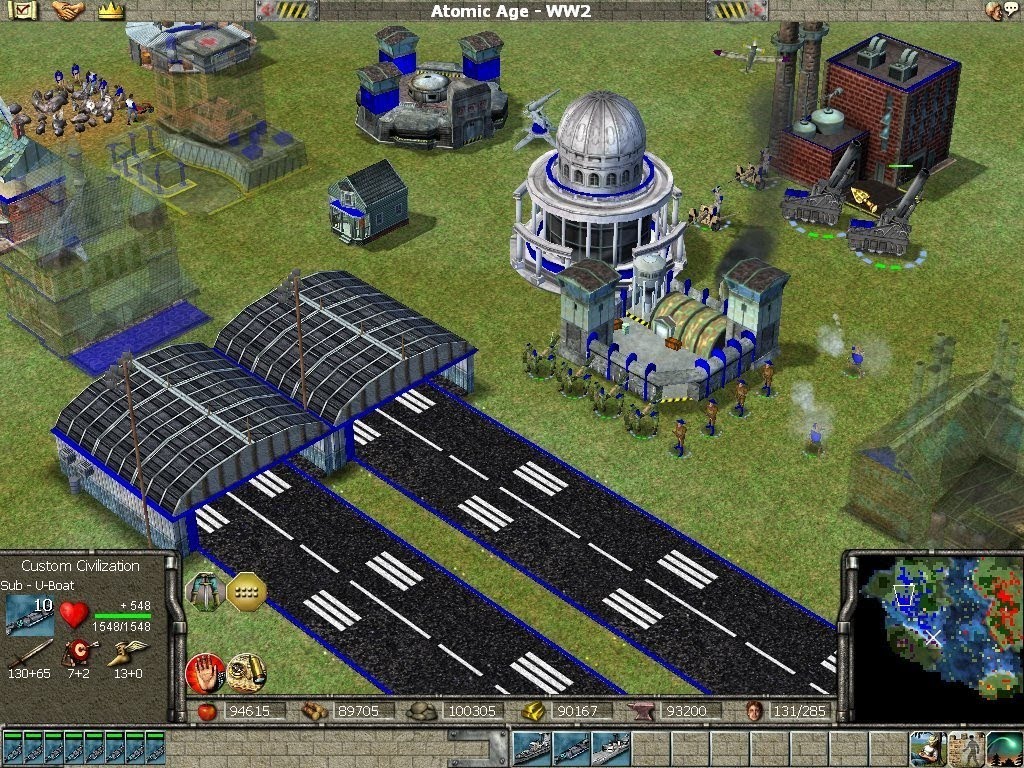

Science output from Universities and Temples is increased by 200%.Īll citizens gather double the food than normal, and twice as fast.
Allows to train Artillery, Anti-Tank and Mobile ArtilleryĪll warships gain +50% attack and health. Allows to train Archer, Skirmisher (Malinesian Archer), Longbowman, Crossbowman, Chu-Ko-Nu (Chinese Crossbowman), Horse Archer, Keshig (Mongol Horse Archer), Camel Archer (Arabian Knight), Numidian Cavalry (Carthaginian Horse Archer) and Assyrian Bowman (Babylonian Archer). 
Reveals Horses (when in World Conquest).Enables Tech Trading with another player.Leads to Literature (with Polyteism) and Drama.Allows to build The Parthenon, the Statue of Zeus and the Shwedagon Paya.
 Allows to train Gunship and Jet Fighter. There are 7 epochs in EE4, each with their own technologies, all in a giant tech tree. There are 18 civilizations in the standard game and 14 in the expansion, which make a total of 45 civilizations. There are Visigoths, Ostrogoths, Ainu, Maori, Inuit, Vandals and Huns, and often offer mercenaries. Thanks to the Apostolic Palace, it's now possible to archieve a Diplomatic Victory much earlier in game. The World Conquest mode allows to play as many factions in game during some of the most important periods in human history, or even play as an empire and guide it to glory from 500'000 BC to 3000 AD. A new Great Person has been added: the Great General can battle alone as a standalone unit (just like the Military, Economic and Imperial Leaders from Empire Earth II and the Warrior and Strategist Heroes from the first Empire Earth). Building the United Nations will double the votes on the player who build them, whatever the resolution is, including Diplomatic Victory. Finally, there's a new way to win: a Diplomatic Victory. If more than one player is building the same World Wonder, the first who completes its Wonder wins the others will have to get double the original cost of the Wonder and start a new project. Diplomacy is much more transparent: not only the players will know what do the others think about them they will also them in what way, via reputation points added or subtracted thanks to good or bad actions towards the other leaders. Each category can accept JUST ONE of their Civics. Gorvernment is now divided in 5 categories: Government Civics, Legal Civics, Labor Civics, Economy Civics and Religion Civics, which offer various advantages. Now, for the first time in a real time strategy game, there will be Great People, divided in Great Prophets (who increase the morale/happiness and production in the province, and found a new religion for the player who discovers the religion's correlate technology first (for example, )), Great Merchants (who can explore a rival territory untouched and perform trade missions, which can improve relations between the two players), Great Scientists (who can build the Academy, which doubles the Tech Points production from all Universities/Laboratories and Temples), Great Artists (who can build a Great Work, which increases the Culture in any province by 4000) and Great Engineers (who can instantly build any World Wonder or National Wonder).
Allows to train Gunship and Jet Fighter. There are 7 epochs in EE4, each with their own technologies, all in a giant tech tree. There are 18 civilizations in the standard game and 14 in the expansion, which make a total of 45 civilizations. There are Visigoths, Ostrogoths, Ainu, Maori, Inuit, Vandals and Huns, and often offer mercenaries. Thanks to the Apostolic Palace, it's now possible to archieve a Diplomatic Victory much earlier in game. The World Conquest mode allows to play as many factions in game during some of the most important periods in human history, or even play as an empire and guide it to glory from 500'000 BC to 3000 AD. A new Great Person has been added: the Great General can battle alone as a standalone unit (just like the Military, Economic and Imperial Leaders from Empire Earth II and the Warrior and Strategist Heroes from the first Empire Earth). Building the United Nations will double the votes on the player who build them, whatever the resolution is, including Diplomatic Victory. Finally, there's a new way to win: a Diplomatic Victory. If more than one player is building the same World Wonder, the first who completes its Wonder wins the others will have to get double the original cost of the Wonder and start a new project. Diplomacy is much more transparent: not only the players will know what do the others think about them they will also them in what way, via reputation points added or subtracted thanks to good or bad actions towards the other leaders. Each category can accept JUST ONE of their Civics. Gorvernment is now divided in 5 categories: Government Civics, Legal Civics, Labor Civics, Economy Civics and Religion Civics, which offer various advantages. Now, for the first time in a real time strategy game, there will be Great People, divided in Great Prophets (who increase the morale/happiness and production in the province, and found a new religion for the player who discovers the religion's correlate technology first (for example, )), Great Merchants (who can explore a rival territory untouched and perform trade missions, which can improve relations between the two players), Great Scientists (who can build the Academy, which doubles the Tech Points production from all Universities/Laboratories and Temples), Great Artists (who can build a Great Work, which increases the Culture in any province by 4000) and Great Engineers (who can instantly build any World Wonder or National Wonder). 
The editor is much simplier: much of the map designing will be similar to the Rise of Nations scenario map editor. Scenario (7 availabale as standard, additional scenarios can be created in editor).








 0 kommentar(er)
0 kommentar(er)
